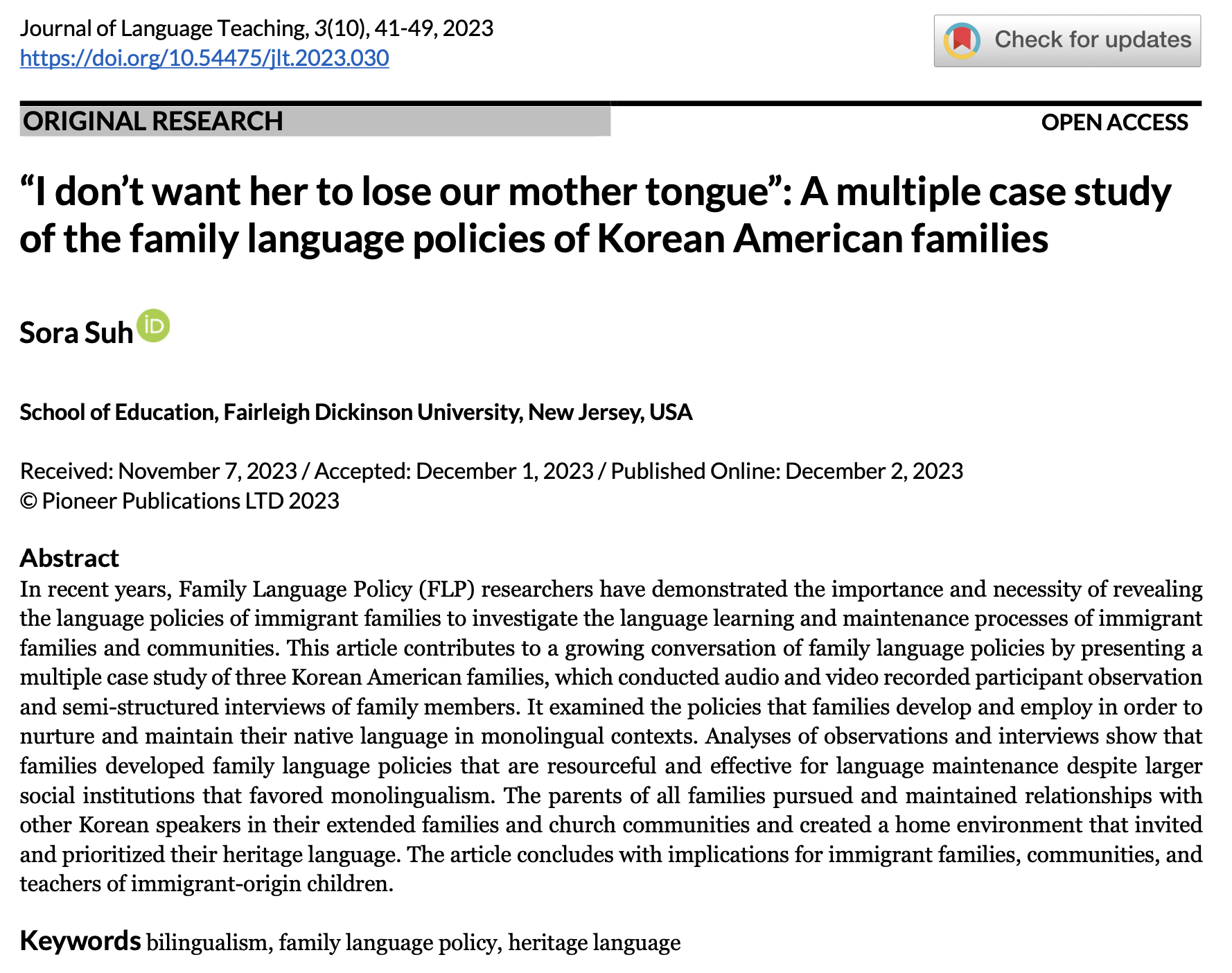“I don’t want her to lose our mother tongue”: A multiple case study of the family language policies of Korean American families
DOI:
https://doi.org/10.54475/jlt.2023.030Keywords:
bilingualism, family language policy, heritage languageAbstract
In recent years, Family Language Policy (FLP) researchers have demonstrated the importance and necessity of revealing the language policies of immigrant families to investigate the language learning and maintenance processes of immigrant families and communities. This article contributes to a growing conversation of family language policies by presenting a multiple case study of three Korean American families, which conducted audio and video recorded participant observation and semi-structured interviews of family members. It examined the policies that families develop and employ in order to nurture and maintain their native language in monolingual contexts. Analyses of observations and interviews show that families developed family language policies that are resourceful and effective for language maintenance despite larger social institutions that favored monolingualism. The parents of all families pursued and maintained relationships with other Korean speakers in their extended families and church communities and created a home environment that invited and prioritized their heritage language. The article concludes with implications for immigrant families, communities, and teachers of immigrant-origin children.






